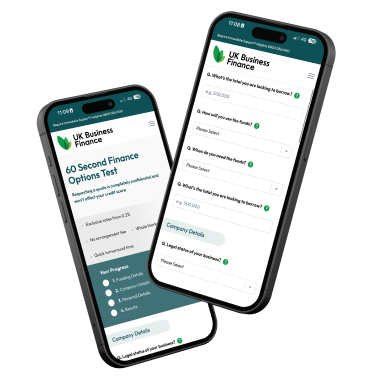Machine finance and refinance
Finance and refinance for business machinery
Machine finance and refinance are two forms of asset funding that help businesses to grow. By investing in new machinery without paying out a lump sum of capital, or refinancing existing machinery, a company can boost business sales and profits.
Hard assets, such as plant and machinery, are expensive to buy outright, and doing so can jeopardise financial stability or limit the company’s growth potential for the future. Paying for a piece of machinery using this type of specialist funding, however, reduces the financial burden of asset investment.
How does machine finance work?
Machine finance can be accessed via a hire purchase agreement or a lease arrangement. It can be suitable for a wide range of industries, including but not limited to manufacturing, engineering, agriculture, and construction.
Various eligibility factors are taken into consideration by the financier, including the applying business’ credit rating, profitability, amount of funding required, and the terms of repayment.
Machinery hire purchase
Buying a piece of machinery through a hire purchase agreement involves putting down an initial deposit followed by contractual repayments at a fixed rate. At the end of the hire purchase contract, the business may take ownership of the asset by paying a small fee.
Asset financiers offering machinery hire purchase may be flexible in terms of the deposit amount – the borrowing business might want to pay a larger deposit to reduce the monthly repayments, for example.
Machinery lease
A machinery lease involves paying the financier fixed monthly instalments for the duration of the contract. It differs from a hire purchase agreement in that the borrowing business cannot become the owner of the asset.
At the end of the lease, the machinery can be returned to the financier. Alternatively, the lease could continue, or a new lease taken out on an upgraded piece of machinery.
How does machine refinance work?
The lender purchases an existing piece of machinery that the business already owns and rents it back to them over a fixed period. The business has continued use of the asset, and releasing its value in this way benefits cash flow and provides greater financial stability.
Benefits of machine finance and refinance
Stable cash flow and no capital outlay
Making fixed monthly repayments makes cash flow needs more predictable and budgeting easier. Business capital is also preserved.
No collateral required
The lender does not need security for the funding as they can repossess the financed asset under a hire purchase or lease agreement if the business cannot make the repayments.
Fast access to valuable assets
The business can start to use the machinery as soon as the finance agreement is in place.
Tax advantages
The business may be able to claim capital allowances on the machinery through a hire purchase agreement. If a finance lease is chosen, repayments are tax deductible.
Applying for machine financing or refinancing
Obtaining finance quotes from a range of asset financiers is crucial to find the best deal for your business. We can conduct a whole-of-market search to find the most suitable machine finance or refinancing deal and apply to the lender on your behalf.
UK Business Finance are commercial finance brokers and we know the criteria of all the lenders in the UK. We offer our services free-of-charge and there is no exclusive contract to sign. Please contact our expert team for more information on how we can help you find the machine funding you need.
Further Reading
Top Finance Tips
We work across a wide range of sectors throughout the UK, providing specialist advice to each sector.

How to financially prepare for investor exits
Whether your business is at an early stage or it’s more established, the financial boost provided by external investment, such as from private equity firms, angel investors, and venture capitalists, is invaluable.

How to finance a MBO
If you’re considering conducting a management buyout (MBO), there are various means by which you can fund it. Financing commonly involves a level of personal funding by individual members of the management team combined with additional external borrowing, such as bank loans and asset financing.

What lenders look for in a business loan application
Knowing what lenders look for in a business loan application helps you present your business in the best light – an important consideration, as being rejected for a loan damages your company’s credit rating and makes it difficult to borrow in the future.

What is a commercial finance broker?
A commercial finance broker is a professional intermediary who helps business owners to source the best lenders and deals. They provide a vital service that eases access to funding and ensures businesses obtain the most appropriate finance for their needs.




